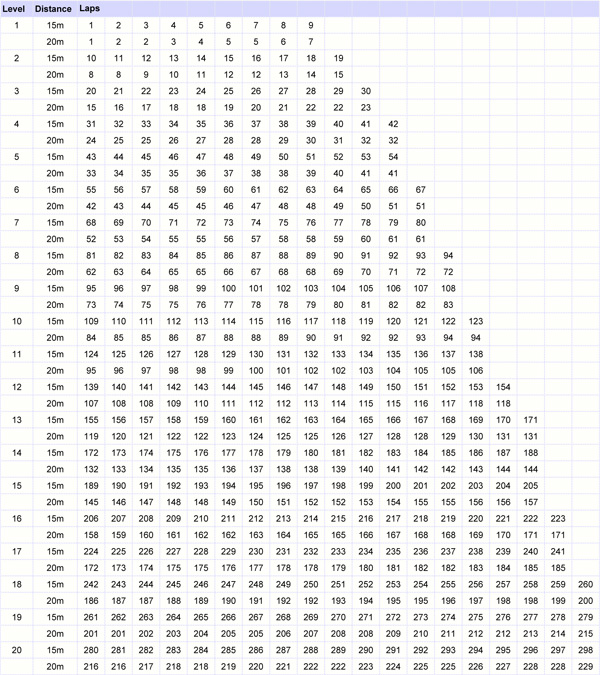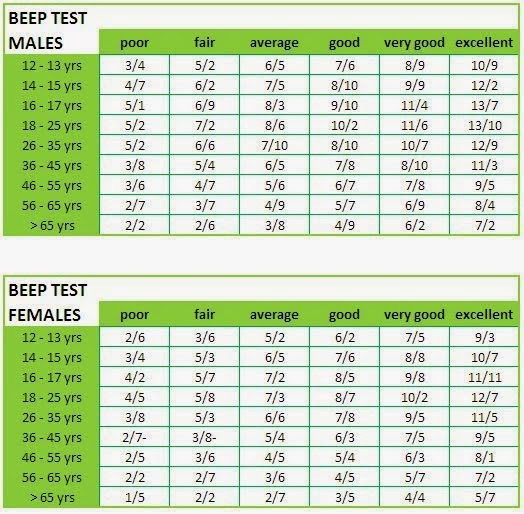

We have clear instructions for conducting the test.

The beep test was developed primarily for children and team sport players, though is becoming a popular test for athletes of all ages, sports and levels. There are a few versions of the beep test, as well as modified tests and alternatives to the beep test. The test continues until the participants are no longer able to keep up with the required pace. At regular intervals, the required running speed increases.

The Beep Test involves running between two markers 20 meters apart, following audio cues which dictate the running speed required. It is often used as the preferred option to monitor progress in response to physical activity programs because of the low cost of equipment, and its ability to test large groups of participants simultaneously. The test was developed in the 1970s by the French Canadian Luc Léger and his colleagues, and is now one of the most commonly conducted aerobic fitness test around the world. lets see whatcha-got.īy the way.Spealler got 17 rounds + 16 reps.The Beep Test is a maximum aerobic endurance fitness test, involving running between markers placed 20 meters apart, at increasing speeds, until exhaustion. Basically this is a test of "Whatcha-got?" So. This is also an incredible test of mental toughness, as it is very easy to give up on this workout mentally before your body actually reaches failure. Now no test is perfect, and if there is any bias it would be to shorter athletes. Some might argue that it favors lighter athletes, but the thruster weight equalizes this more than you might think. Nor does the running route, height of the wall ball target, or the model of airdyne matter. In other words, size, strength, or skill doesn't play a huge role (muscle ups and oly lifting would favor the skilled, heavier weights the strong, and rowing and airdyne favors those with mass).

This test makes it easy to compare athletes across a spectrum of sizes, locations, and irregardless of skill or equipment. This is my test for pure conditioning (not skill, not strength).


 0 kommentar(er)
0 kommentar(er)
